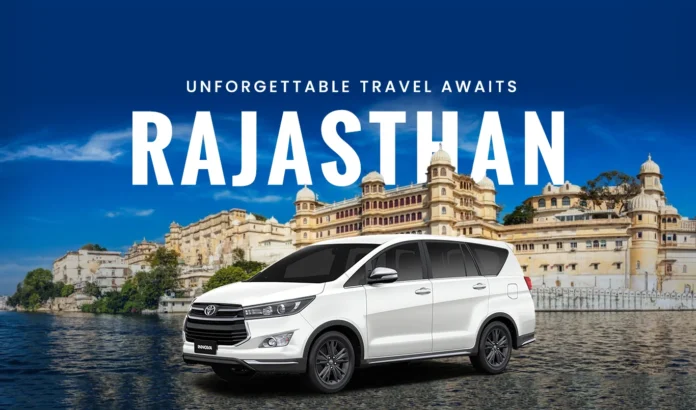Wildlife safaris are an incredible way to explore the natural world, observe diverse species, and immerse oneself in unique ecosystems. However, the rising popularity of wildlife tourism has brought with it environmental concerns. To address these challenges, travel agencies play a vital role in ensuring eco-friendly practices are incorporated into safari experiences.
In regions like Rajasthan, especially in destinations such as Jawai, the balance between tourism and conservation is crucial. A Travel Agency in Rajasthan can champion sustainability while offering unforgettable wildlife safaris in Jawai and beyond.
Why Eco-Friendly Wildlife Safaris Matter
Eco-friendly wildlife safaris prioritize:
- Conservation: Protecting habitats and species for future generations.
- Sustainability: Minimizing environmental impact.
- Community Support: Ensuring local communities benefit from tourism.
The Role of Travel Agencies in Promoting Eco-Friendly Practices
1. Encouraging Responsible Tourism
A travel agency has the power to educate tourists about eco-friendly practices. This includes:
- Avoiding littering during safaris.
- Respecting wildlife and maintaining a safe distance.
- Opting for biodegradable materials and avoiding single-use plastics.
2. Promoting Low-Impact Accommodations
Eco-friendly accommodations are a cornerstone of sustainable tourism.
- In Jawai, many luxury camps are designed with minimal environmental impact, using solar energy and sustainable materials.
- Travel agencies can partner with such properties to ensure tourists have eco-conscious lodging options.
3. Collaborating with Local Conservation Efforts
A travel agency in Rajasthan can support conservation initiatives by:
- Partnering with local wildlife conservation organizations.
- Allocating a portion of profits to fund conservation projects in Jawai and other wildlife-rich areas.
- Raising awareness among travelers about the importance of preserving wildlife habitats.
4. Utilizing Eco-Friendly Transport
Travel agencies can reduce the carbon footprint of safaris by:
- Using electric or hybrid safari vehicles where possible.
- Limiting the number of vehicles in sensitive areas to prevent habitat disruption.
5. Creating Awareness Campaigns for Travelers
Educational campaigns can make a significant difference in shaping tourist behavior.
- Share guidelines on eco-friendly practices before and during safaris.
- Highlight the ecological importance of destinations like Jawai, known for its leopards and migratory birds.
- Use social media platforms to promote sustainable tourism practices.
Eco-Friendly Initiatives for Wildlife Safari in Jawai
Supporting Local Communities
In Jawai, the harmonious coexistence of humans and wildlife is a key feature. Travel agencies can:
- Organize village tours that showcase traditional lifestyles.
- Promote locally-made handicrafts, ensuring the community benefits economically.
Preserving Leopard Habitats
Jawai’s granite hills are home to a thriving leopard population. A travel agency can ensure:
- Strict adherence to wildlife viewing guidelines to prevent stress on animals.
- Minimal intrusion into leopard habitats during safaris.
Bird Conservation at Jawai Dam
The Jawai Dam attracts numerous migratory birds. Agencies can contribute to bird conservation by:
- Promoting birdwatching tours with expert guides.
- Supporting local projects aimed at preserving wetlands and bird habitats.
Challenges in Ensuring Eco-Friendly Wildlife Safaris
1. Balancing Tourism and Conservation
While wildlife safaris boost tourism, excessive footfall can disrupt ecosystems. A travel agency in Rajasthan must:
- Regulate the number of safari bookings per day.
- Promote off-peak visits to reduce pressure on ecosystems.
2. Combatting Illegal Practices
Unsustainable activities such as feeding wildlife or using harmful materials can harm ecosystems. Travel agencies must enforce strict policies to combat such practices.
3. Addressing Traveler Expectations
Some tourists may expect luxury experiences that conflict with eco-friendly principles. Agencies need to strike a balance by offering sustainable yet comfortable options.
How Travel Agencies Can Implement Eco-Friendly Strategies
Partnering with Eco-Conscious Providers
Collaborate with lodges, transport providers, and guides who share a commitment to sustainability. For instance:
- Recommend Jawai’s luxury camps that operate on eco-friendly principles.
- Hire local guides who understand and respect the environment.
Offering Incentives for Sustainable Choices
Encourage travelers to make eco-friendly choices by:
- Offering discounts for group travel to reduce vehicle use.
- Providing reusable water bottles and tote bags as part of safari packages.
Leveraging Technology
- Use digital platforms to minimize paper usage for itineraries and tickets.
- Develop apps that provide eco-tourism tips, wildlife information, and maps for self-guided tours.
Marketing Eco-Friendly Safaris
SEO and Content Marketing
Use targeted keywords like Wildlife Safari in Jawai and travel agency in Rajasthan to reach eco-conscious travelers. Create blog posts, videos, and testimonials highlighting sustainable practices.
Social Media Campaigns
Showcase eco-friendly safari experiences on platforms like Instagram and Facebook. Highlight initiatives such as solar-powered camps, clean-up drives, or community projects.
Collaborating with Influencers
Partner with eco-tourism influencers to promote destinations like Jawai, emphasizing the sustainability aspect of your packages.
Conclusion
Eco-friendly wildlife safaris are the need of the hour to preserve fragile ecosystems while providing unforgettable experiences. Travel agencies have a unique opportunity to lead this movement by promoting sustainable practices, supporting conservation, and educating travelers.
For a travel agency in Rajasthan, destinations like Jawai offer the perfect blend of adventure, luxury, and sustainability. By incorporating eco-friendly initiatives, agencies can ensure that both travelers and the environment benefit from these extraordinary journeys.



